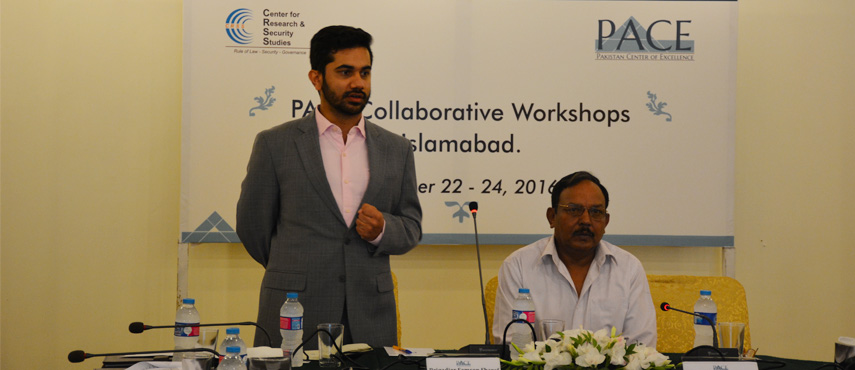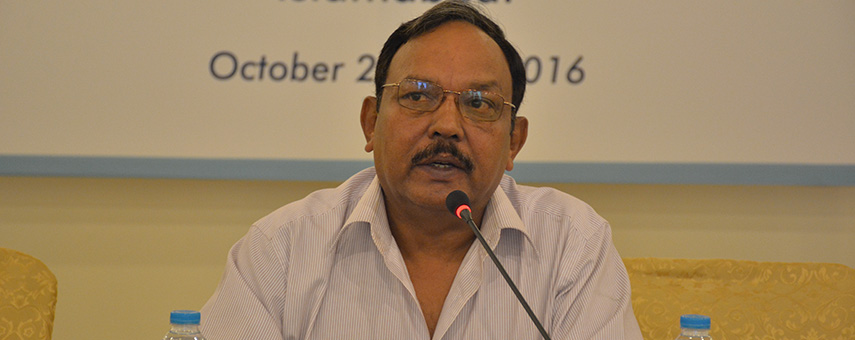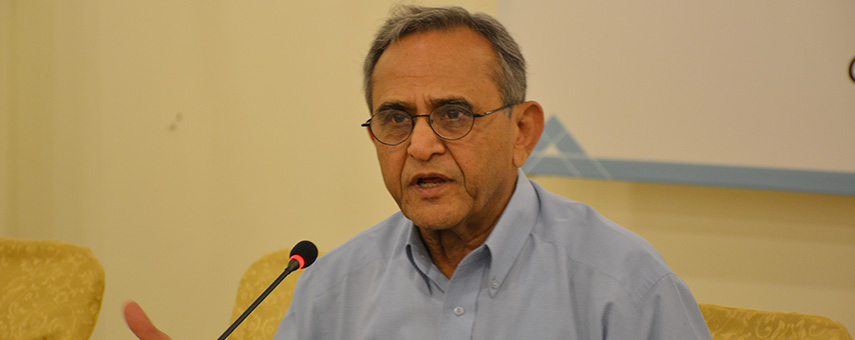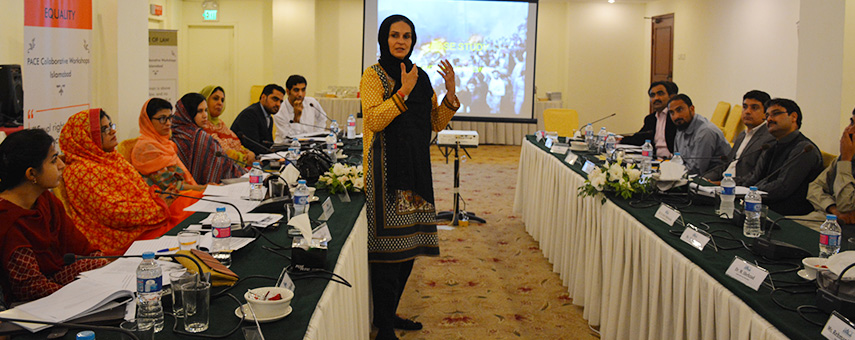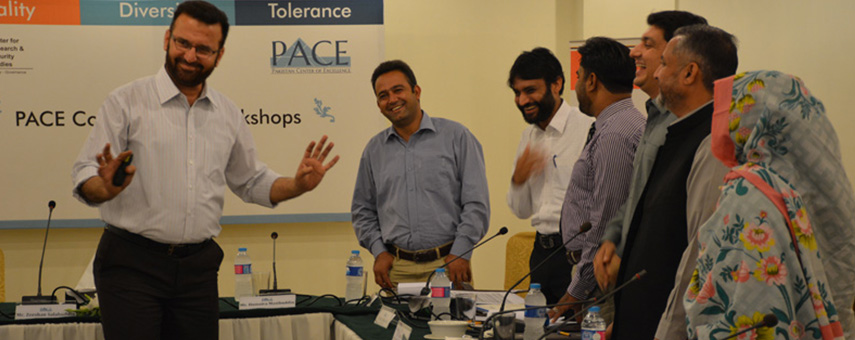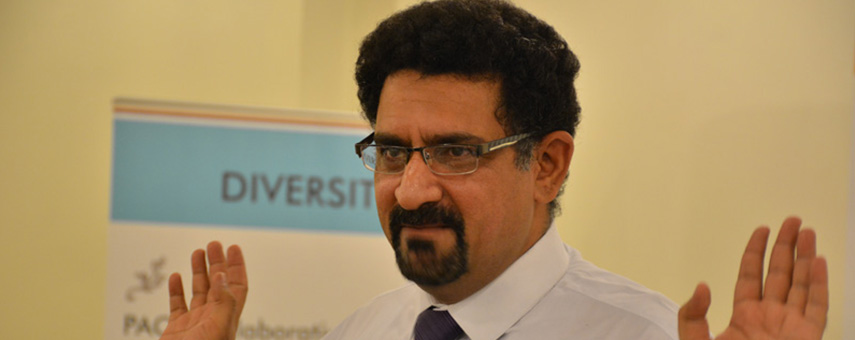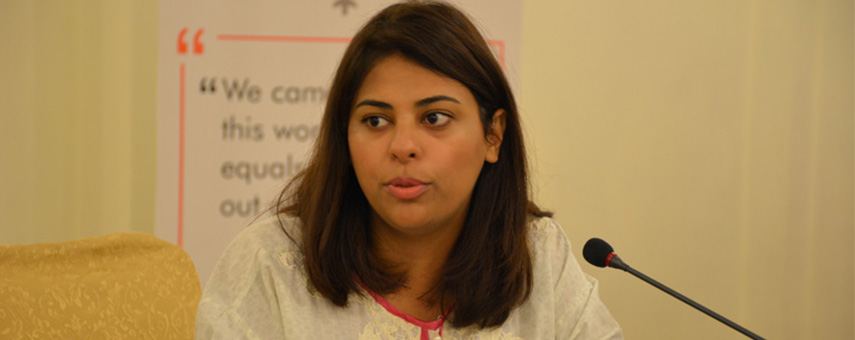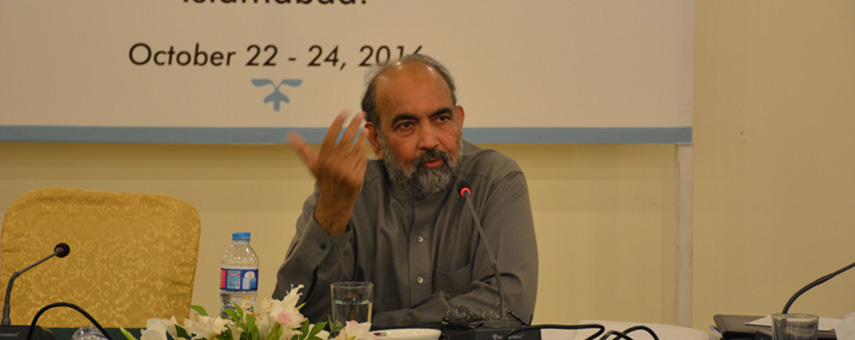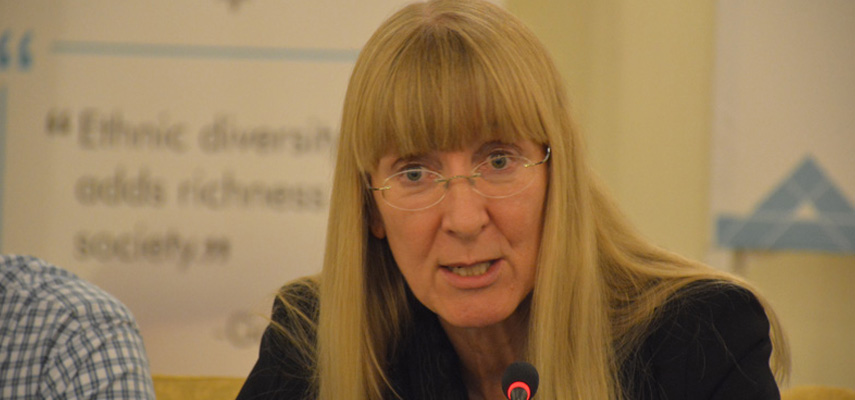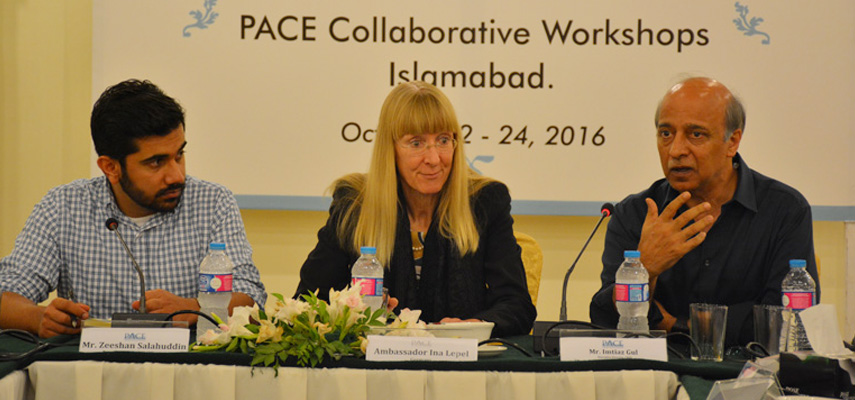The Center for Research and Security Studies (CRSS) conducted the ninth three-day collaborative workshop for young university lecturers and professors between October 22-24, 2016 at Hill View Hotel, Islamabad. The workshop was conducted under the umbrella of the Pakistan Center of Excellence (PACE), a counter-radicalization, pluralistic values focused project, in collaboration with the Dutch Government. Participants included young university lecturers and professors from University of Swat, Swat, Gomal University, D. I. Khan, Islamia University, Bahawalpur, Hazara University, Mansehra, University of Peshawar, University of Malakand, Chakdara, Shaheed Benazir Bhutto Women University, Peshawar, Bahria University, Islamabad, and University of Poonch, Rawala Kot, AJK.
Mr. Zeeshan Salahuddin, Project Manager PACE, and Director Communications and Strategy at CRSS, welcomed participants to the workshop, saying that PACE is put together by CRSS to counter radicalization, inculcate critical thinking, question preconceived notions and narratives, and embed the national discourse in constitutionalism and the rule of law. He stressed that PACE inculcates the universal values of tolerance and acceptance and asked participants to apply their learning here in their own lives and, particularly, in the lives of their students.
Workshop Core Areas
The young professionals were trained in following areas:
- Leadership and motivation
- Equal citizenry and respect for rule of law
- Fundamentals of democracy, governance and accountability
- Respect for diversity, opinions and rights
- Rights of minorities and other marginalized groups
- Constitutionalism, and adherence to Pakistan’s Constitution, particularly articles 8-28
- The importance of asking critical questions in the pursuit of knowledge
Brigadier Samson Sharaf kicked off the first session of the day on the topic of “rule of law.” He talked about transparency, predictability, stability, and accountability as major elements required for the establishment of rule of law. He said that we won’t be able to make everyone answerable before law until we follow these rules in our daily lives. All the religions give us a certain kind of code of conduct to have a comprehensive idea of the do’s and don’ts.
He elaborated that no system is considered to be perfect, all of them have their plus and minus points. But a nation’s responsibility is to struggle for a flawless system which can be formed through a transparent manner.
Dr. A. H. Nayyar spoke about how education can be helpful in inculcating critical life skills among the youth, such as equal citizenry, respect for rule of law, respect for diversity, and rights and opinions. His lecture started with him highlighting issues that exist in our society due to which we are not able to provide equal citizenry to everyone. He said that might is considered to be right and we don’t show any respect for the rule of law which presents a retrogressive image of our society. We are self-obsessed and support such ideologies which support this pattern of thinking. He also explained how important civic education was to make people realize the sacrifices they have to make to accommodate each other for creating a tolerant and peaceful society.
The last session of the day kicked off with social activist and advocate, Ms. Humaira Masihhudin, speaking on the theme of pluralism and multiculturalism. Human beings belong to one origin and one place, she said, and no purely homogeneous society exists in the modern world. Most societies consist of different ethnic groups. We may define minority as a group of people who are singled out from other groups and differently treated, because of their physical or cultural characteristics. Minority is a subordinate group as opposed to the dominant group.
In Islam, the concept of diversity is clearly inclusive, she continued. In the Quran, she said that humans are addressed to treat one another without any discrimination and respect each other’s beliefs and should never use abusive language or show disrespectful attitude towards others. When we look at the character of the Holy Prophet (PBUH), He always respected the non-Muslim groups in Mecca and Medina. Even when we talk about the day Mecca was conquered by Muslims, the Prophet forgave all of his enemies for what they had done to harm him. His last sermon included the lines, “All mankind is from Adam and Eve, an Arab has no superiority over a non-Arab nor a non-Arab has any superiority over an Arab; also a white has no superiority over black nor a black has any superiority over white except by piety (taqwa) and good action.” In short, Islam is the religion of tolerance and coexistence, love and peace for others even if they belong to different religious or cultural groups.
Mr. Safiullah Gul, bureau chief for a private television channel in Peshawar, conducted a session on leadership and motivation where he emphasized the extent to which effort is directed towards a goal, and its components: activation, persistence and intensity. His session, filled with activities to enhance creative and critical thinking, focused on looking at things from a slightly different perspective to encourage problem-solving.
Dr. Zubair Ghauri expanded his views on respect for diversity, opinions and rights. He said that as citizens of Islamic Republic of Pakistan, whenever we talk about humanity and humanitarian affairs, we are closely linked with the Islamic concept of human rights and equality. The constitution of Pakistan guarantees equal rights to all the citizens but the preamble restricts equal citizenry by defining the concept of divine sovereignty. But there are few minority groups who don’t believe in divine sovereignty and on the basis of their beliefs we deprive them off the concept of equal citizenry.
Ms. Sara Farid stated that media should consider norms and values of a society, selection of words and body language should match the cultural values. Sensationalism should be avoided and self-censorship should be considered. Biased and abusive attitude should not be accepted. She stressed on the importance of being neutral and presenting authentic news. She also elaborated on the future of electronic broadcast media in Pakistan.
Mr. Qibla Ayaz started his session on the topic of democracy, governance and accountability. He shared his views saying that accountability is a prerequisite for democratic systems. When we talk about Pakistan, democracy has always been portrayed as a failed system. We need to ponder whether democracy has really failed or has it just been portrayed as such. Democracy stabilizes with able leadership and this is what we lack in Pakistan. Good governance can emerge only if democracy is mature and stable.
Ina Lepel, Ambassador of Germany to Pakistan during the closing ceremony of Pakistan Center of Excellence’s (PACE) ninth round of collaborative workshops said, “Pakistan has shown great solidarity and resilience in managing the Afghan refugee crisis. For well over 30 years, Pakistan has spent vast amount of resources to accommodate their neighbors, and must be commended. However, what has changed recently is surprising, and understanding the root causes would be critical to a balanced approach forward.”
Mr. Imtiaz Gul, Executive Director CRSS, said that the basis of a progressive society is equal citizenry and strict adherence to the rule of law. He said that Pakistan needed to embrace these ideals in order to cultivate tolerance and diversity.

